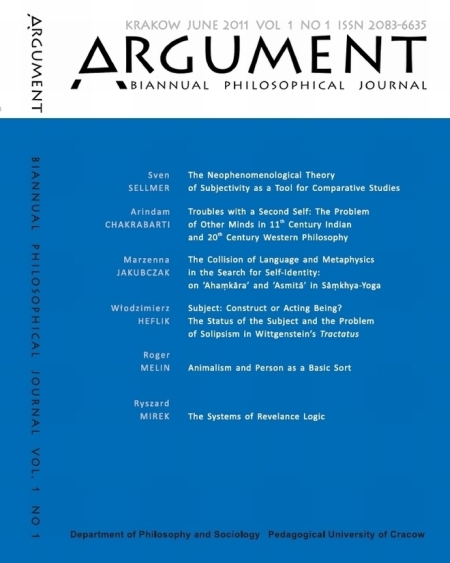The Neophenomenological Theory of Subjectivity as a Tool for Comparative Studies
Słowa kluczowe:
comparative philosophy, Greek philosophers, Hindu philosophy, Indian philosophy, neophenomenology, phenomenology, self, Hermann Schmitz, subjectivityAbstrakt
The conception of subjectivity developed by the German philosopher Hermann Schmitz (1927-) is especially suitable for cross-cultural investigations because its foundations lie in human experiences that are basic and universal. The paper has two aims. Firstly, to give an outline of Schmitz’s theory. Secondly, to show its usefulness (and its limits) by interpreting some Greek and Indian philosophers which, at the same time, represent certain main approaches to the problem of subjectivity.


